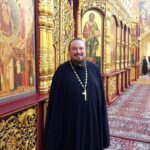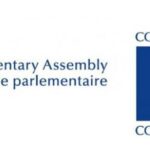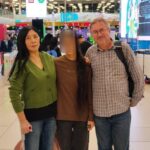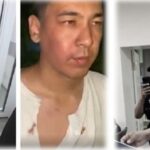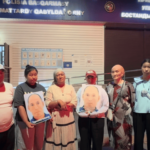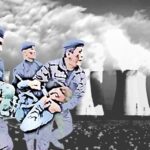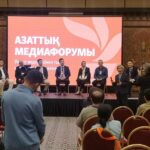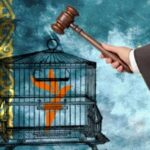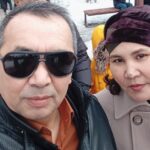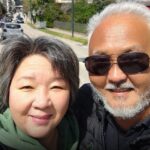“The recent wave of uprisings in the Arab world has made the leaders in Astana, Ashgabat and Tashkent keenly aware of their own vulnerability and they now appear more intent than ever to use repressive measures to hold on to power, stifle dissent and escape responsibility for their actions,” said Brigitte Dufour, director of International Partnership for Human Rights (IPHR).
The new report, which is entitled A sobering reality: Fundamental freedoms in Kazakhstan, Turkmenistan and Uzbekistan twenty years after the Soviet collapse, details violations of freedom of expression and media, freedom of association and assembly, and freedom of religion in the three countries under review. Trends long documented in
“While
In the aftermath of the December 2011 events in western
“We, the human rights defenders of Kazakhstan, and our international partners call on the authorities of our country to uphold the Helsinki commitments, which were unanimously reaffirmed in the Astana Declaration of the 2010 OSCE Summit in Kazakhstan,” said Roza Akylbekova, acting director of Kazakhstan International Bureau for Human Rights and Rule of Law (KIBHR).
The Turkmen and Uzbek regimes have also paid lip service to democracy and human rights, while continuing efforts to consolidate their rule and suppress opposition. The run-up to the February 2012 presidential elections in
“During President Berdymukhamedov’s first period in office, his promises of a democratic transition did not translate into any changes in practice,” said Farid Tukhbatullin, head of Turkmen Initiative for Human Rights (TIHR). “Prior to last month’s elections he again promised to carry out reforms, but I suspect that these promises will also remain just promises,” he continued.
The Uzbek authorities have responded to growing internet use among Uzbek residents and speculations about the possibility of an Arab-style revolution in
“The Karimov regime’s talk about reform is only a ploy to curry international favor,” said Surat Ikramov, chairman of the Initiative Group of Independent Human Rights Defenders of Uzbekistan (IGIHRDU). “In reality the Uzbek authorities have not showed any willingness to change their tactics and continue to persecute independent journalists, human rights activists, religious believers and others who challenge official policies,” he added.
The report published by the five human rights groups outlines broader trends regarding the protection of fundamental rights in
Download the summary or the full version of the report.
For more information:
Brigitte Dufour, IPHR Director (English, French), +32 473363891
Harry Hummel, NHC Director (English, Dutch), +31 70 392 6700
Roza Akylbekova, KIBHR Acting Director (Russian, English), +7 727 2395345
Farid Tukhbatullin, TIHR Head (Russian, English), +43 1 3191822
Surat Ikramov, IGIHRDU Chairman (Russian), + 998 971 197689
—
Summary of main concerns detailed in the report:
In Kazakhstan power has been firmly in the hands of President Nursultan Nazarbaev throughout independence. He was re-elected in April 2011 elections that offered no real choice and his ruling party remains essentially unchallenged even if parliamentary elections held in January 2012 formally ended its monopoly in the law-making body. The opposition Communist Party was prevented from running in the parliamentary elections because of a court decision that suspended its activities on questionable grounds.
Attacks on freedom of expression in the media have recently increased, and in particular opposition media have come under growing pressure through criminal and administrative charges, civil defamation suits involving excessive claims for damages, and intimidation and obstruction of the work of journalists. Internet sites containing information critical of the authorities are regularly blocked and vague allegations of “extremism” have increasingly been used to justify restrictions on online content. New legislation from early 2012 provides for enhanced government control of electronic media.
The authorities’ response to the recent oil worker protests, which began in western
A new harsh Religion Law was adopted in October 2011 despite strong national and international criticism. The law introduced new restrictions on religious activities and retained the ban on unregistered religious communities, while making the process of registration more difficult and open to arbitrary implementation. Already prior the adoption of the law, so-called non-traditional religious communities were increasingly subjected to harassment.
***
In
The Turkmen authorities tightly control the country’s media and use them as outlets for state propaganda. The internet remains heavily regulated and censored, satellite TV has come under renewed attack and the only competitor to the state-owned cell phone provider was kicked out of the country in late
Journalists who contribute to foreign media, civil society activists and other civil society members who are considered “disloyal” to the state are subjected to intimidation and harassment, including surveillance, interrogations, travel bans, arrests and politically motivated charges and convictions. The run-up to the February 2012 presidential elections saw new attempts to intimidate and silence critics of the regime. The website of Turkmen Initiative for Human Rights, which is well-known for its independent coverage of developments in
The Turkmen authorities continue to promote the role of government-controlled organizations in place of independent civil society groups, and the adoption in early 2012 of a first-ever law on political parties is likely to remain another symbolic measure without any real impact. The threat of state reprisal effectively discourages public protests and the only known attempt at a protest in 2011 was quashed.
Restrictive legislation on the practice of religion remains in force and members of religious minority communities continue to be singled out for persecution. No civilian alternative to compulsory military service exists and new cases have been reported in the past year when Jehovah’s Witnesses were convicted for their refusal to serve in the army on conscientious grounds.
***
The regime of
The authorities tightly control the country’s media and try to prevent the circulation of information deemed unfavourable. The recent wave of protests in the Arab world has prompted new attempts to rein in the internet, whose users have increased rapidly in the last few years.
Members of the country’s small community of independent journalists and human rights defenders face ongoing harassment, ranging from surveillance and house arrest to physical attacks and politically motivated charges. Numerous journalists and human rights activists continue to languish in prison despite a few recent releases apparently made as concessions to the international community. One of the few international NGOs to have worked in
Small-scale peaceful pickets staged by known critics of the regime continue to be broken up by police. The fate remains unknown of many of those who were imprisoned for participating in the rare mass protest in Andijan in 2005, which was put down in a bloody fashion by Uzbek government troops. Some of these prisoners are reported to have died as a result of harsh prison conditions and torture. The Uzbek authorities have rejected calls for an independent and impartial investigation into the Andijan events.
Minority religious communities remain under pressure and the authorities continue their indiscriminate campaign against independent Muslims who practice their faith outside strict state control. In 2011-2012 the Independent Group of Human Rights Defenders of Uzbekistan has documented dozens of new cases of arbitrary arrests, torture and ill-treatment, fabricated criminal cases and unfair trials against individuals branded as religious “extremists.” Serious concerns remain about 28 individuals who were extradited from
Full version of the report could be downloaded HERE
SOURCE:
http://www.iphronline.org/ca_report_20120307_e.html


